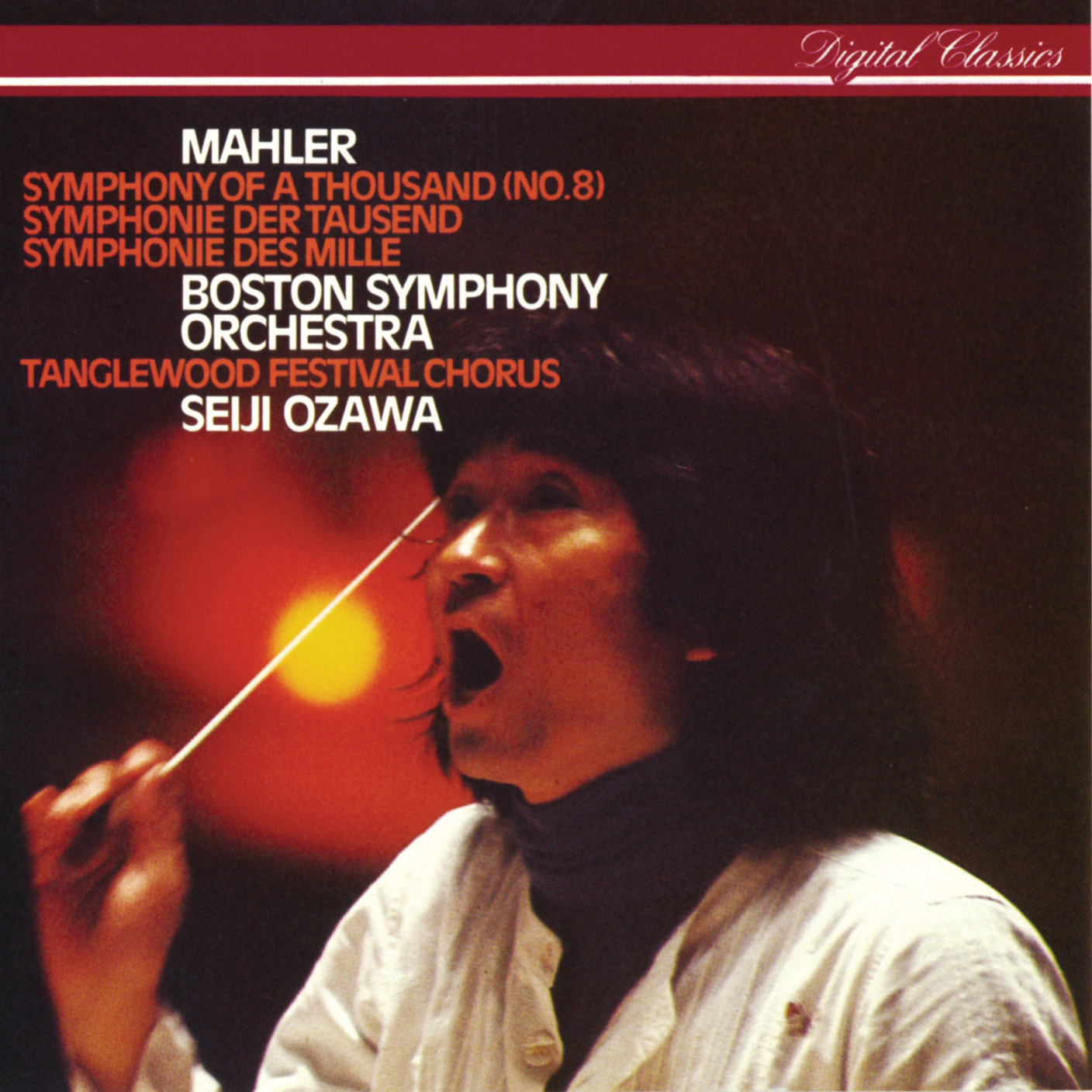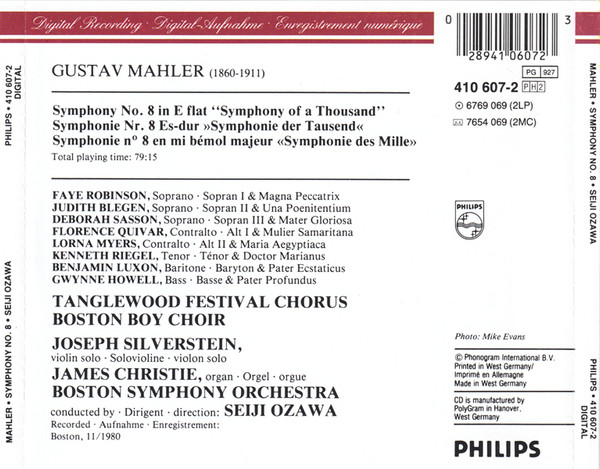When Seiji Ozawa Ate a Sun-Kebab off of a Baton
I realized I have never approached Mahler's Symphony no. 8 chronologically, only on its own.
What I heard this time are some musical elements noticeable since Mahler's 5th.
Where Symphony no. 7 leaned towards Modernism, I can still recognize some of that here, especially with the cacophonous overlapping of chorus, soloists, and orchestra at some points in the first movement. In the long second movement, moments of klangfarbenmelodie are interesting, instances I have heard in the previous three symphonies as well.
I don't think I would have zeroed in on some of these musical elements if I had not listened to Mahler's 1-7 before No. 8. I usually consider the 8th as a gargantuan choral/vocal effort in the tradition of Symphony no. 2 or Das Klagende Lied, yet there is a definite musical route from the previous three symphonies to this one. I can certainly see a train of thought towards Arnold Schoenberg's Gurre-Lieder.
I hadn't planned on revisiting this one in my current survey, happily having listened to Solti and Kubelík (Audite) fairly recently. But with the recent passing of the great British baritone Benjamin Luxon, I couldn't put aside the chance to hear him again - and he's great. The Peter Ecstaticus portion is suitably dramatic, and is a wonderful tribute to a wonderful voice.
The other soloists are an interesting mix. I love Judith Blegen as Una Poenitentium; she a lighter, brighter voice amongst the trio of sopranos, but it works beautifully. US tenor Kenneth Riegel, on the other hand is an acquired taste. He has a heroically ringing, squeezed tenor, which I generally don't mind, yet is almost overwhelming in the effort he puts forth. It was much the same from him in his role as Berlioz's Faust
Overall, this is a fine performance. I like Ozawa leading large-scale choral works in general, and I also like the placement of the chorus here, a boon to this recording. With eight soloists, the recorded balance is strange, but that wide setting will often be the case sonically. Ozawa's Mvt. 1 is fast and strong, and Part II takes it back a little; I find less mystery here than anxious tension.
But it was nice to refamiliarize myself with this recording. Rest in Peace Benjamin Luxon and Maestro Ozawa.
Listen on YouTube
Work
Symphony 8 in E-flat Major 'Symphony of a Thousand'I. Part 1 (23.07)
II. Part 2 (56.07)
Soloists
Faye Robinson, soprano
Judith Blegen, soprano
Deborah Sasson soprano
Florence Quivar, contralto
Lorna Myers, contralto
Kenneth Riegel, tenor
Benjamin Luxon, baritone
Gwynne Howell, bass
Ensembles
Boston Boy Choir
Tanglewood Festival Chorus
Boston Symphony Orchestra
Seiji Ozawa, conductor
Label: Decca
Year: 1981
Total Timing: 79.14
A wonderful tribute to an earlier collaboration of Boston and Seiji Ozawa.
Find more Mahler recording HERE!


Comments
Post a Comment